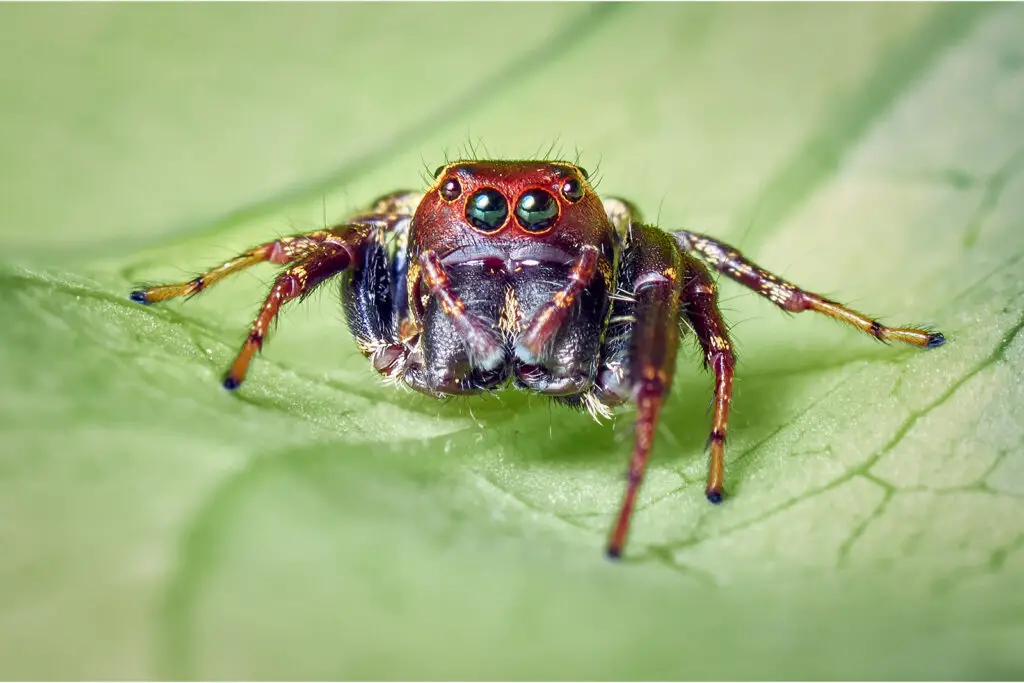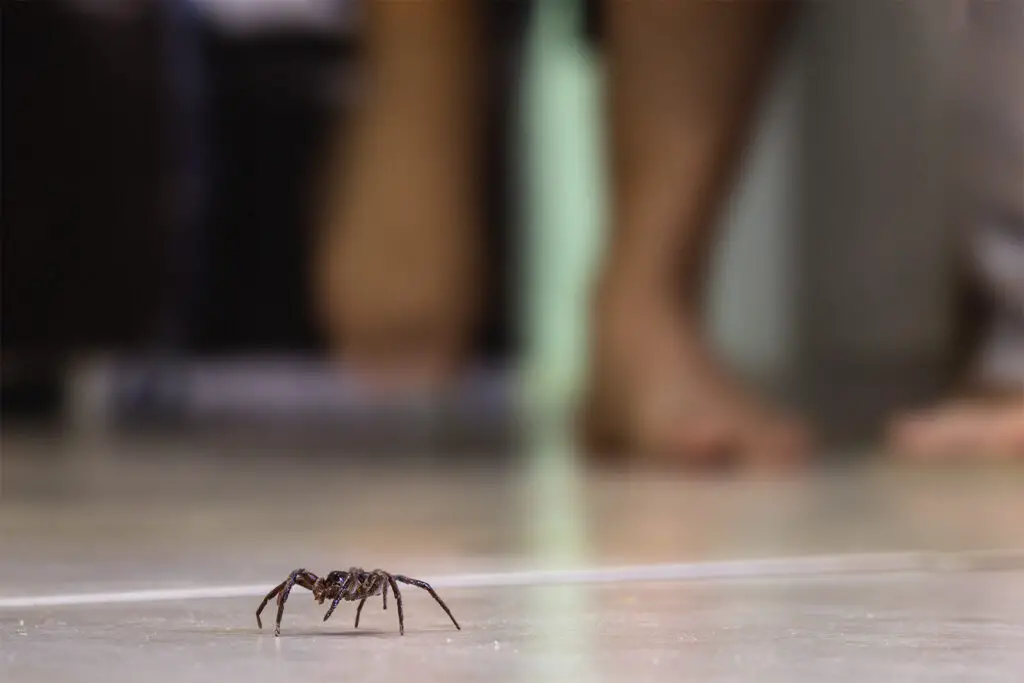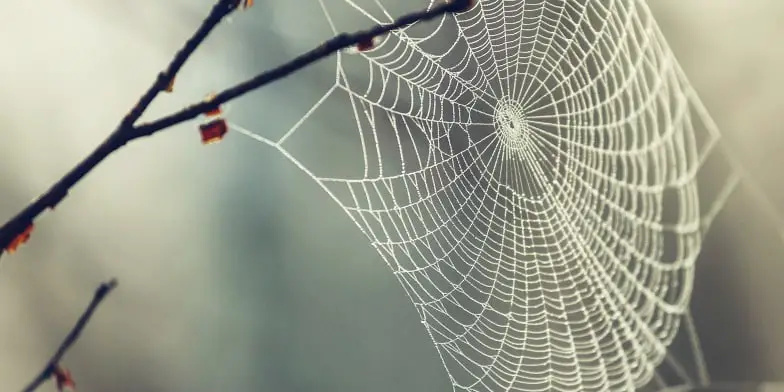
Spider webs can be a common occurrence even in the most tidy of homes. No matter how much of a clean freak you are, you will end up finding some once in a while. Thankfully most spiders are non-venomous, but their webs can still make your home look a bit unflattering. So what do you do? Should you destroy a spider web just because of the mess they make?
Spider webs typically pose no threat to us and our environment. If their web is destroyed the spider will simply move on and find somewhere else to live. You won’t hurt a spider by destroying its web, but you might want to consider keeping them around as spiders are nature’s pest control.
There are a few things you should consider before destroying a spider web. Depending on the type of spider, some may be doing your home more good than harm. Let’s talk spider webs!
Deciding Whether or Not To Remove Spider Webs
Most spiders like to make their webs in the crevices of the home in which no one usually goes. You’ll find them in wardrobes, the corners of your ceiling, inside boxes, and within the storerooms of your home. They are most often harmless, with some important exceptions. Some spiders, like black widows and brown recluse spiders, have highly venomous bites which are highly dangerous, especially to young children and pets. For the most part, however, the spiders in your home are only there to make a web and survive.
Spiders weave their webs in different intricate patterns depending on their species, and different spiders will choose to live in different places. Sometimes these places can interfere with movement through our home so it’s natural to want to remove them. Just remember that cleaning up a web without removing the spider will lead to a new web somewhere else nearby.
Before you take out that broom and start cleaning in the nooks and crannies that spiders love, let’s consider the good and the bad of destroying their webs.
The Good
Spiders are a vital part of nature’s pest control. Many household spiders are known to keep other insect pests out of the house by catching and eating them. If your spiders are in your yard or garden, they can be even more beneficial because they can keep harmful pests off of your plants.
There are species of jumping spider that will even hunt and kill mosquitoes.
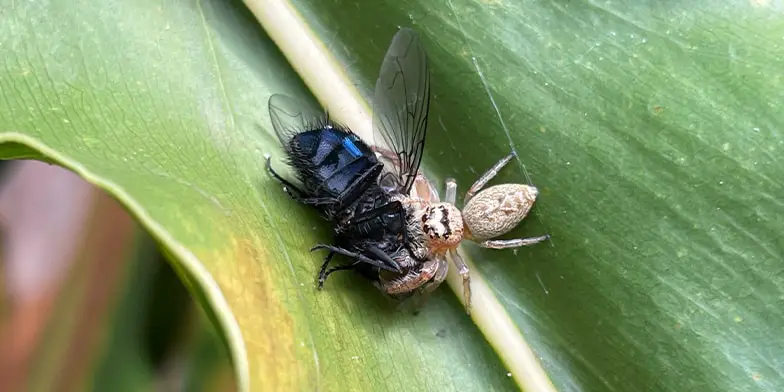
It’s a common belief that all spiders are venomous, which has created an unhealthy fear of our arachnid friends. In reality, less than 0.001% of all spider species are capable of lethally harming a human being.
Unless the webs in your house are causing a lot of trouble, you could leave them alone and let the spiders do their thing. Most household spiders will want to steer clear of you as much as possible. You’re pretty scary.
If you have a fear of spiders, or arachnophobia, then these good points will be unlikely to persuade you to live with them in your home. This is perfectly understandable, and you shouldn’t feel guilty for cleaning them out. I have some tips and tricks for getting rid of spiders below.
The Bad
The main disadvantage to letting spiders build their webs in your home is a potentially unkempt look to the house. This is naturally subjective, but spider webs do not look good in a decorative space. In an outdoor setting it’s all part of the experience, but in spaces like the living room, bedroom, or kitchen, webs provide an untidy appearance.
If you have a lot of spiders in your home, it’s likely you also have a lot of other insects, too. The spiders are coming inside because there is a lot of available prey in the environment for them to hunt. It’s not the spider’s fault, but if you’re noticing a lot of arachnid activity you might need to consider why they’re choosing to set up in your home.
Getting Rid Of Spider Webs
If you’ve decided to get rid of the spiders and/or their webs in or around your home, here are some ideas for how you can go about it.
Inside the Home
To take care of a spider inside the home you’ll first have to figure out what kind of spider it is. You should consider moving the spider to a different location rather than killing it. Not only will this save the spider’s life, but it will possibly be helpful to you as well. Here are some helpful tips for making your decision:
- Determine if the spiders in your home are venomous or not. If they are, destroy both the spider and its web immediately. Don’t take chances.
- In the likely case the spiders aren’t venomous, you can check if the web is dusty. A dusty web means the spider has long since abandoned it. The web is of no help to anyone, so you should remove it.
- If the spiders are thriving in their web but it’s in a spot that’s causing problems, you can remove the spider using a paper cloth and place it outside.
- If you destroy a web while the spider is elsewhere, just keep in mind it will rebuild somewhere close by.
Gardens and Yards
In gardens or yards people normally don’t notice spider webs, and as its their natural habitat we can afford to be a lot more lenient. Wherever possible, we should always try to live and let live with the creatures in our gardens. Here are some useful tips for dealing with unwanted webs in the outdoors:
- In controlled outdoor areas you can choose to move the spider to a different place and destroy its web. It will easily be able to find a new habitat and build a new web.
- Spiders in areas with growing plants are good because they act as natural vermin control systems. Keep them around, and your plants will love you for it.
- Relocating a spider is easy. If you choose instead to kill it, you should have a very good reason for doing so. Remember, the outdoors belongs to everyone.
Do Spiders Leave if You Destroy Their Web?
One of the best traits of spiders is how quickly they can build their webs. There are spiders like the Garden Orb that remove and rebuild their webs daily! Even if their webs are destroyed, it’s unlikely that the spiders will move very far away.
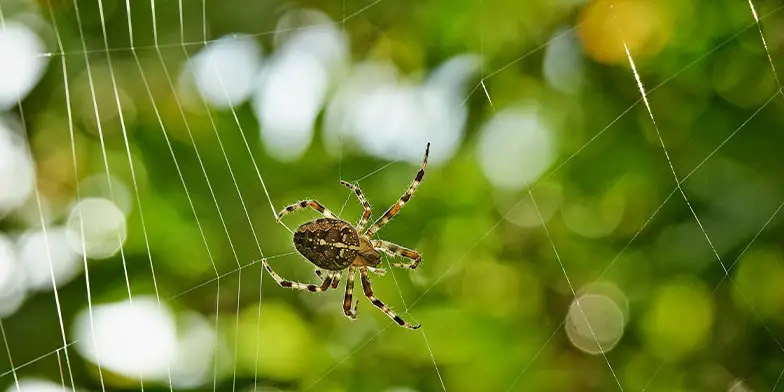
Spiders usually pick a spot because something about that place attracts them. Whether it be the weather conditions, the local environment, or the insects inhabiting the area. Once a spider finds an area they like, it is unlikely they will move to a different place just because their web got destroyed. They’ll take it in their stride and rebuild nearby.
Tips to Prevent New Spider Webs
If you want to avoid the hassle of removal and cleanup, here are some steps you can take to discourage spiders from building webs in your home. Taking steps to protect both yourself and the spiders are always best. There is rarely a need to resort to violence.
- Do a regular checkup on the more hidden corners of your house. Unclean areas will invite more bugs, and more bugs will extend that invitation to more spiders.
- Clean up the dusty webs first. The old webs don’t come in use for spiders, and they don’t do much to improve the look of your home either!
- Regularly clean your home and surrounding areas. Cleanliness is the first thing that keeps spiders at bay.
- Before you get problem with unwanted spiders, get rid of the insects that spiders feed upon. This will cut their food supply and make them less inclined to make a home in your home. If you have problems with uncontrollable insect infestation, it might be time to call a professional exterminator.
Wrap Up
Like us, spiders are just trying to find a home where they can survive, and again like us sometimes where they choose to live can cause problems. Does that mean you should destroy their webs? That’s for you to decide.
Spiders are very important for the environment and can keep bothersome insects like flies and mosquitoes away from your home.
Sometimes it’s nice to have a little backup.
Driven by a passion for those tiny creatures that rule our world, we at Bug Domain strive to be your go-to resource for information on insects.


